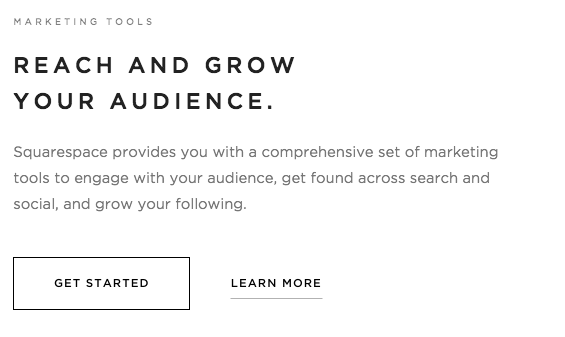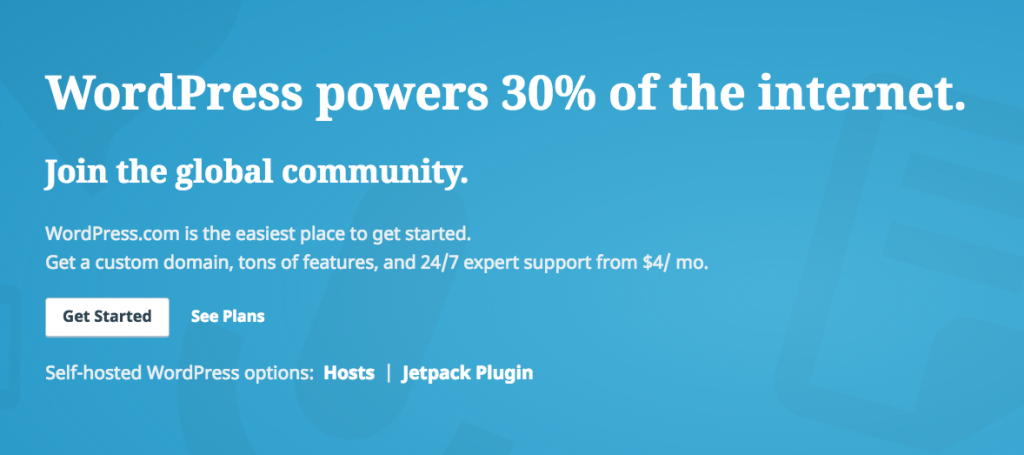Congratulations! You have decided to take on the fulfilling and sometimes unpredictable world of entrepreneurship. You have gotten all the legal stuff out of the way, and now you know the next significant step to take is marketing. The most substantial piece of this pie is the website. You know you need one, and you are wondering if you have the skill to do it on your own. Thankfully, there are many website development platforms out there that make it easy for even a beginner. However, you still wonder which is the best option to take and if you are up for the job. First, let’s get one question out of the way…..
Should I Get a Designer?
For the entrepreneur who knows they do not have the time, this is a viable question to ask. There are many advantages to having someone do the web development for you: this task can be handed over to them altogether, it saves you time, this person is likely an expert in layout design and user experience, and depending on the agreement you have with them, they can handle any website troubleshooting. Depending on the level of labor, customization, revisions, and support needed after the project is completed, you could be spending upwards of $6,000. If you have absolutely no time, money to spare, and the benefit of knowing what you want beforehand, then it can happen. However, if you are a one-person band with limited resources, you may want to take a stab at this thing yourself. So, read on for benefits and disadvantages of three of the most popular DIY website options.
Wix


Wix has been in the web development game since 2006. It markets itself as an easy-to-jump-into platform that helps entrepreneurs get right to business. Here are the highlights and not-so-bright spots for those thinking about utilizing this platform.
Pros
- Drag and Drop Editor – Wix knows those probably using their platform are not expert web designers. Therefore, they have made it easy for users to drag and drop the various design elements they want on their website. They also have premade templates depending on the industry the user is preparing the site for.
- Impeccable onboarding – If you are new to this world of web development, matching color schemes, and working with pre-made website templates, Wix has you covered. They send tutorials right to your email and have a support crew working around the clock to help with any hiccups.
- Short-Term pricing – Most other website development platforms will lock users into an annual plan, and charge them extra if they want to try it out for a month. For those who are testing the waters, Wix does have affordable short-term plan options.
Cons
- Drag and Drop Editor – While this is also a pro and a nice feature for those just getting started, it can be difficult to navigate this to get the aesthetic look you are looking for. A ruler will help determine the distance between objects, but it is easy for things to look cluttered very quickly. Unless you have an eye for spacing and artistic placement, this one could be hard to maneuver.
- A lack of app integration – In comparison to a system like WordPress, Wix does not have a good grasp on providing easy integration. WordPress offers widgets for users to seamlessly integrate features like SEO management, Google Analytics, Shopify, and email sign-ups. Wix’s solution for this comes typically in an I-Frame that links to another page instead of an actual integrated feature.
- Not favorable for SEO – Now, this involves much technical jargon that I will not go into here, but Wix websites are not favorable for SEO. Google’s bots have a hard time reading these sites for whatever reason, so if SEO is important to you, look elsewhere.
Squarespace


For those who are a little more comfortable with web development concepts, and feel that they can handle a more involved interface, Squarespace might be the answer. This platform is known for their sleek and modern templates, perfect for businesses focusing on fashion, art, or lifestyle branding.
Pros
- Excellent templates – Squarespace templates are modern, minimalistic, and incredibly attractive to look at. They will quickly catch the eye of any customer.
- All plans are ad-free – Wix does post ads on sites. Nicely enough, Squarespace does not do this. In fact, all of their plans are ad-free, so you do not have to worry about ad distractions for customers viewing your site.
- Can easily switch over from another platform – Now this is a great feature if you have started a blog somewhere else but want to switch over to Squarespace. The site allows you to quickly import a blog from WordPress, Tumblr, or Blogger. This makes the start-up a lot more seamless.
Cons
- Challenging to navigate – Again, this one is a bit more advanced than Wix. How you should steer the website builder is not always clear, so you will have a bit of a learning curve trying to manage all the features.
- SEO isn’t the best here either – Again, for reasons not entirely known here, SEO is not a robust feature for Squarespace websites. Users cannot edit their page titles in blog posts, and it does not score well on Google’s Page Speed Tool.
- A lack of a preview mode – All edits made are seen live. This is a pain if users are experimenting or are trying to make more extensive edits.
WordPress


Even if you are not an entrepreneur or aspiring web page builder, you have likely heard of WordPress. It came into existence in 2003 and is arguably the most popular web development tool and CMS tool. This is probably the most advanced out of the three, so if a user wants the most customization possible, this is an option to look into.
Pros
- Relatively user-friendly – If you have ever used a CMS before or have experience working with blogs, WordPress will be a breeze to work through. The user interface is pretty self-explanatory, and because of its popularity, there are many resources out there to help you figure out how to move forward if you get into a pinch.
- Plugins! – WordPress makes it easy to integrate extra features and functionality into your website. Its marketplaces house tens of thousands of third-party and WordPress-developed plugins, with many of them being free. Incorporating a newsletter pop-up, web analytics platform, e-commerce site, or SEO manager is as easy as a simple installation.
- An SEO juggernaut – WordPress has indeed figured out what Google likes and what their search bots are looking for. Templates are organized for SEO, and loading times are also favorable.
Cons
- The options can be overwhelming – WordPress gives you many options to customize templates and make them your own. The number of options can be a bit daunting to those who are new to web design. Also, it does take a minute to get used to the menu options if you have never used a CMS before.
- Security – Because WordPress is one of the hottest platforms on the market, hackers are always evolving their tactics to infiltrate these sites. Therefore, you have to be on your guard when downloading plugins, and enacting extra security features.
- Customizations can get expensive – If you want to take the extra plunge and customize a website to your liking, much like hiring a designer, the price can get pretty expensive. WordPress designers know their worth and will charge top dollar to work with any special arrangements.
Final Thoughts
Web design is not easy, but there are many more options for those who want to take on the task themselves and do not want to pay the money for a custom website. Most of these options offer available tech support, tutorials, and tons of free help on forums. If you would like to save money, learn something new, and have a little time to spare, you can make a website that looks just as good as a custom one.
Sources:
Squarespace Review – Plenty of style, but is it worthwhile?, www.websitetooltester.com/en/reviews/squarespace-review/
The pros and cons of choosing WordPress for your website CMS, www.arcstone.com/blog/pros-and-cons-of-wordpress-cms
Wix Review: 6 Pros & 6 Cons of Using Wix For Websites, www.shivarweb.com/4794/wix-review/






